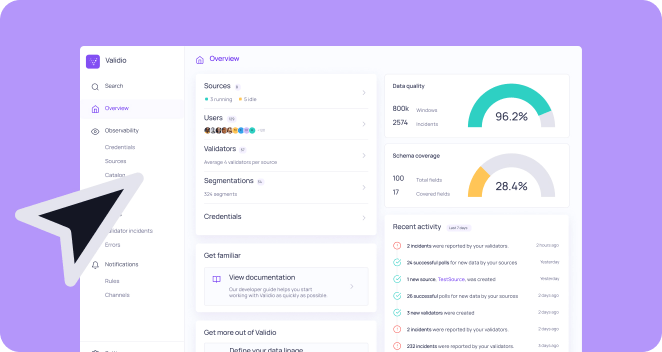4. Ownership - Enable Accountability and Data Governance
Establishing unambiguous data ownership is fundamental to effective data governance. In the Data Catalog, you can assign and publicly display ownership data, making it clear who is responsible for maintaining, securing, and ensuring the quality of each data asset. This fosters accountability, improves collaboration, and provides users with clear points of contact for data-related queries and issues.
Data Asset Insights Become Critical for Your Data Management Strategy
Gaining insight into data assets becomes mission-critical for those looking to implement a data management strategy because they enable you to:
Prioritize and Improve Data Quaity
First, data asset insights help you to prioritize and improve data quality issues by revealing which data assets are most trusted and valued by your data consumers. This means you can address problems such as missing, inaccurate, or outdated data promptly. Furthermore, these insights allow you to recognize and reward data owners and stewards who maintain high-quality data assets.
Clean Up Unused Dashboards and Data Sources
Second, data asset insights showcase the most widely used and popular data assets among your consumers. Armed with this information, you can clean up unused dashboards and data sources to, saving time and resources. Additionally, these insights enable you to promote and recommend relevant and useful data assets, enhancing the value delivered to data consumers.
Demonstrate Data Value and Impact
Third, data asset insights provide a clear understanding of how your data assets contribute to business goals and outcomes. This data illuminates the value and impact of your data assets to stakeholders such as executives, investors, and regulators, instilling confidence in your data-driven initiatives. Moreover, data asset insights empower you to calculate and effectively communicate the ROI of your data assets and initiatives.
Validio Helps You Unlock the Full Potential of Your Data
Ready to boost data trust and maximize the ROI of your data initiatives? Sign up for a free trial of Validio’s Data Trust Platform today and start using data asset insights. You will be amazed by how much you can learn from and improve your data.





